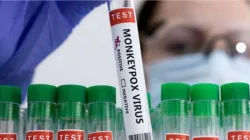AIIMS Delhi issues protocol for treatment of suspected monkeypox patients amid surge in cases globally
Following the latest outbreak in Africa, the Mpox virus is now spreading globally. India's neighboring country, Pakistan, has confirmed three cases of the virus, along with an additional case reported in Pakistan-occupied Kashmir (POK).

Mpox outbreak: Amid a surge in mpox cases globally, the All India Institute of Medical Sciences (AIIMS), Delhi, on Tuesday (August 20) issued a protocol for handling patients with suspected Monkeypox. The World Health Organization (WHO) declared Monkeypox or mpox a public health emergency of international concern on August 14.
AIIMS Delhi said that the Standard operating procedure (SOP) outlines the necessary steps to handle Monkeypox cases in the AIIMS Emergency Department. "Monkeypox is a viral zoonosis with symptoms similar to those seen in the past in smallpox patients, although clinically less severe. The World Health Organization (WHO) has declared the Monkeypox outbreak as a public health emergency of International concern, thereby requiring heightened awareness, rapid identification, and stringent infection control measures to prevent further spread," it said.
Protocol for handling patients with suspected monkeypox
1. Screening in Triage area:
- Upon arrival, patients with fever, rash, or a history of contact with confirmed Monkeypox cases should be flagged for immediate assessment.
- Identify key symptoms: fever, headache, muscle aches, back pain, swollen lymph nodes, chills, exhaustion, and characteristic skin lesions (maculopapular rash that may progress to vesicles and pustules).
2. Isolation/ Holding area:
- Immediately place suspected patients in a designated isolation area to minimize contact with other patients and staff.
- AB-7 Beds no. 33, 34, 35, 36, and 37 has been earmarked to isolate the monkeypox patients.
- These beds will be allotted to the monkeypox patients on the recommendation of the Emergency CMO and treated by the Medicine department AB-7 shall remain a temporary holding area for the patient till he/she is shifted to the hospital earmarked for the definitive care (Safdarjung Hospital).
3. Notification to IDSP:
- Inform the officials of Integrated Disease Surveillance Programme (IDSP) with contact no. 8745011784 when a suspected case is identified
- Provide them with the patient's details, brief history, clinical findings and contact details.
4. Referral to Safdarjung Hospital:
- As informed by Safdarjung Hospital has been designated for managing and treating Monkey Pox patients. Accordingly, any patient suspected of having monkeypox should be referred to Safdarjung Hospital for further evaluation and treatment.
5. Ambulance:
- A dedicated ambulance has been allotted to shift the patients to Safdarjung hospital.
- The Emergency staff has to inform the ambulance coordinator on the mobile number 8929683898 to shift the suspected Monkeypox patient to Safdarjung hospital.
6. Patient Handling and Isolation:
- All patients should be handled with strict infection control measures.
- Staff should use personal protective equipment (PPE) when dealing with suspected cases.
7. Documentation and Communication:
- Proper documentation of the patient's details, symptoms, and referral process should be maintained.
Monkeypox or Mpox
Mpox, formerly known as monkeypox, is a viral disease that causes fevers, headaches, and muscle aches, as well as painful boils on the skin. It's spread from person to person through close, skin-to-skin contact. A severe strain of the mpox virus, previously causing panic in the Democratic Republic of Congo, is now spreading rapidly through Kenya and several other African nations, prompting serious concern among health authorities.
Mpox is caused by the mpox virus, which is part of the Orthopoxvirus genus, the same family as the smallpox virus. The virus is zoonotic, meaning it is transmitted from animals to humans. In Africa, it is primarily spread through contact with infected animals such as rodents and primates. Human-to-human transmission can also occur through close contact with infected individuals or contaminated materials.
Also Read: Govt directs to increase vigilance at airport, borders as Mpox cases rise globally
Also Read: Govt holds high-level meeting on monkeypox preparedness review
